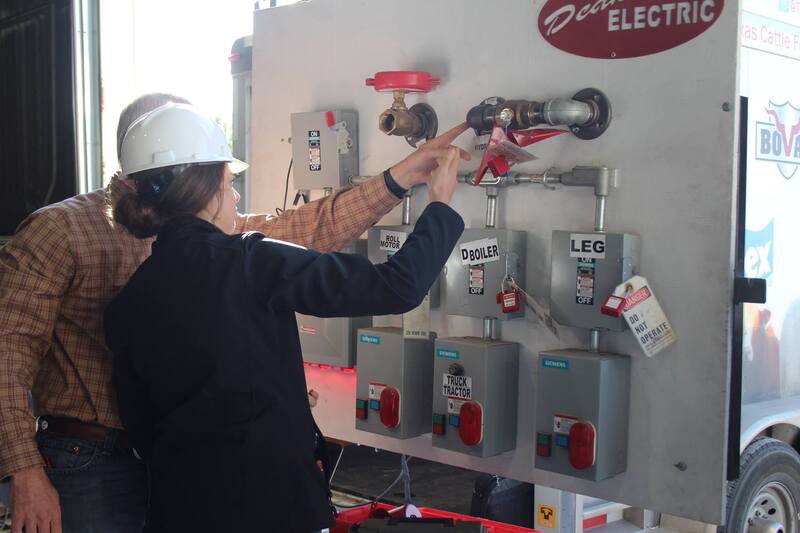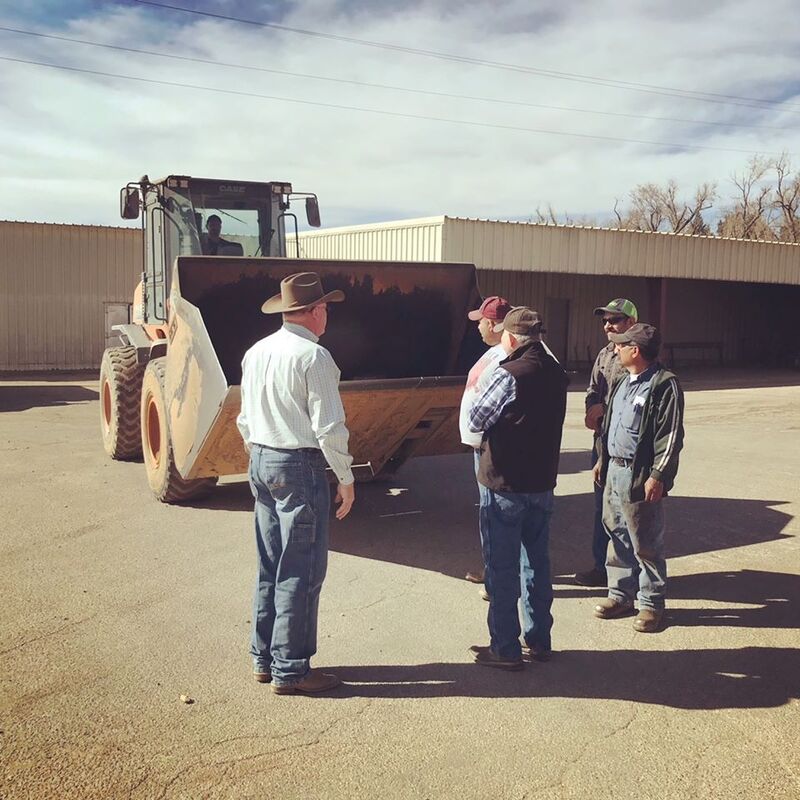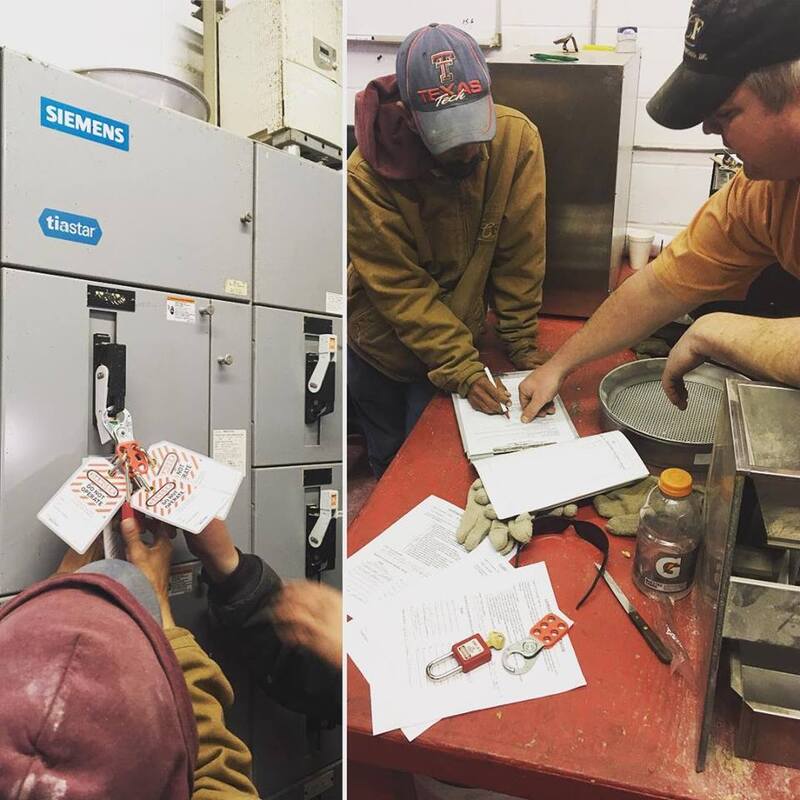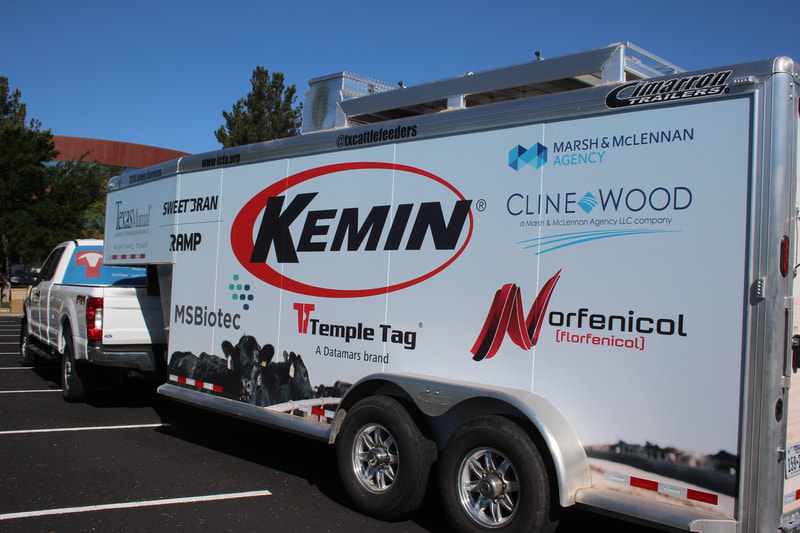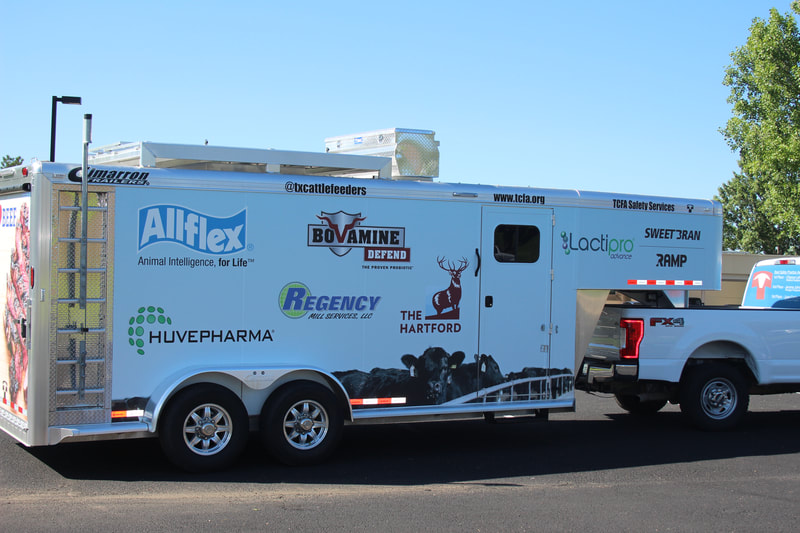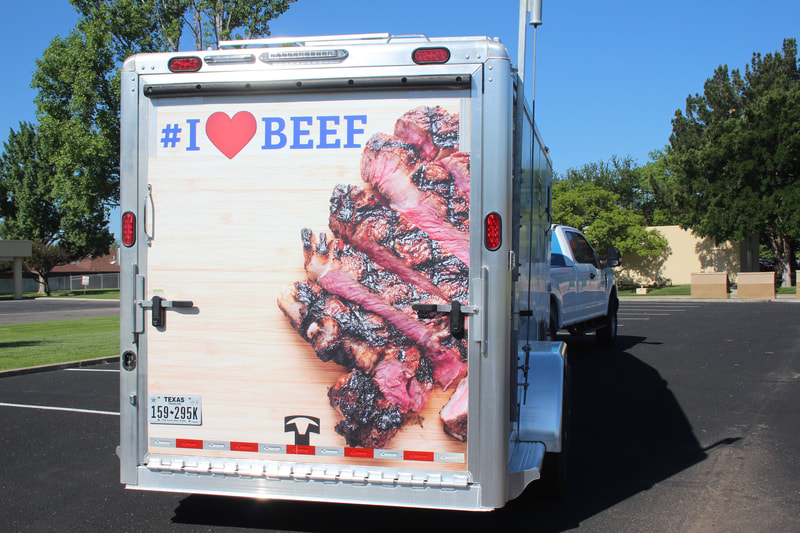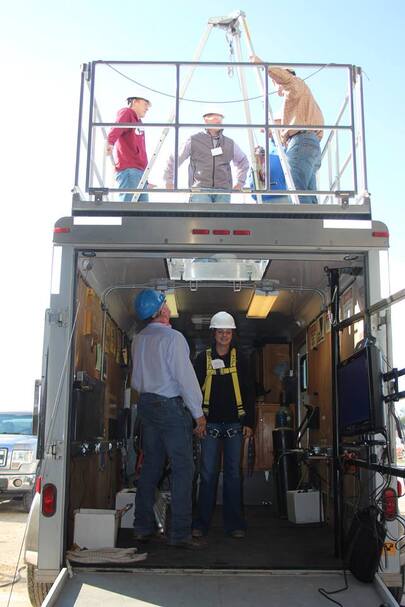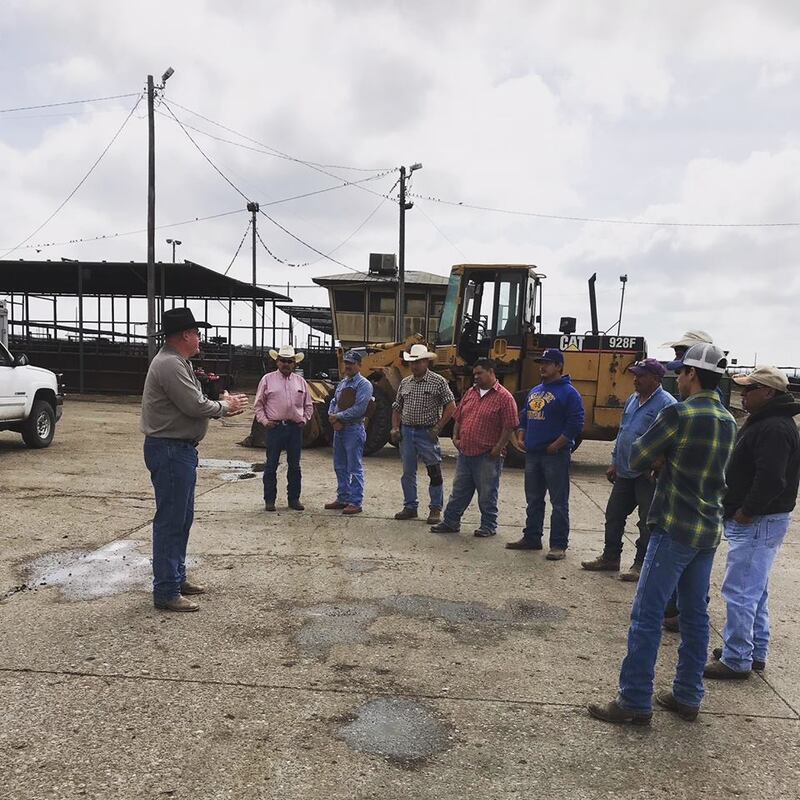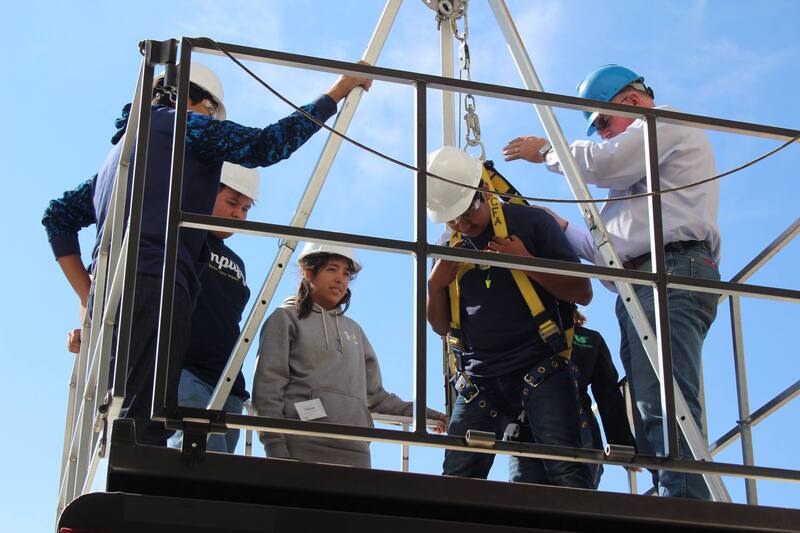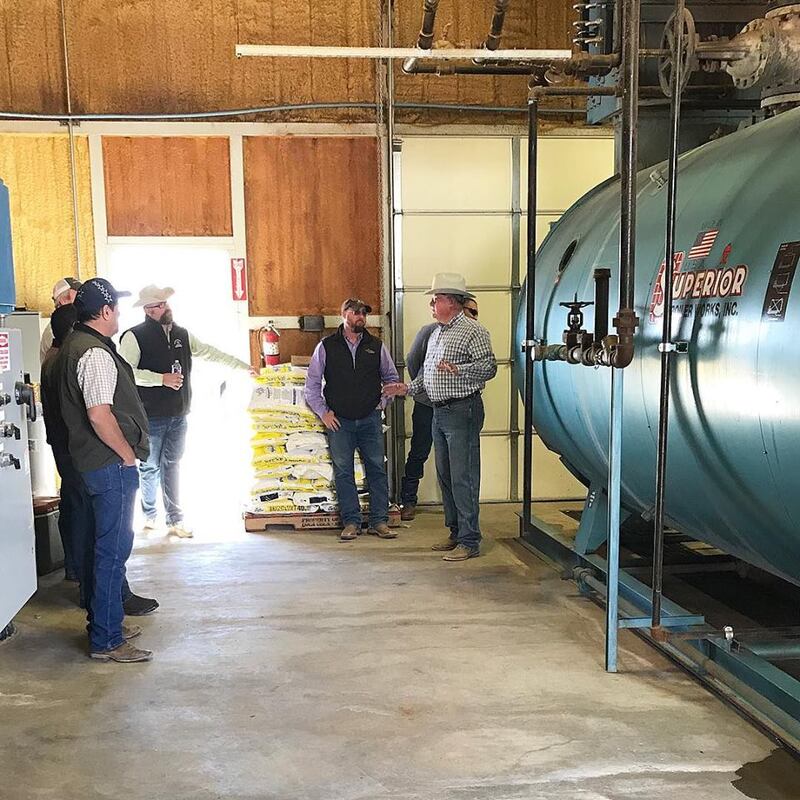|
During a TCFA safety training at a feedyard, an employee motioned Gordon Moore to lean in so he could tell him about a frightening situation he experienced. The employee described an incident where his front-end loader bucket was caught in a powerline. He tapped his head signaling to Moore that he remembered the training when he and his crew learned about electrical safety from him a few years back prior to the incident. And how that training had kept him safe until he could call for help.
“That training was on electrical safety and what employees should do if they ever found themselves caught between a live wire and an electrical conductor. We specifically talked about equipment and powerlines,” Moore said. “Thankfully, it stuck.” Those stories are not uncommon, said Moore, who has more than 30 years of feedyard and safety training experience. But accidents happen less when feedyard employees are better trained, he said. Gordon Moore, of Moore Ag Safety, has collaborated with TCFA for the past 8 years serving as the association’s lead feedyard employee safety consultant and trainer for the TCFA Safety Services Program. In that role Moore has conducted tens of thousands of onsite safety training courses on feedyards across Texas, Oklahoma and New Mexico. “TCFA’s safety program is unlike any of its kind,” he said. “We have onsite tools that we use to train feedyard employees on safe working conditions right on the feedyard where they work.”
TCFA’s feedyard employee safety program started in the 1980s with routine feedyard safety inspections and a comprehensive safety review and policy book for TCFA feedyard members.
However, in 2004, TCFA feedyard members came to the association needing a more robust program. That discussion led to the official development of the TCFA Safety Services Program. The new program included routine safety inspections and reviews as well as an enhanced safety policy book that was more adaptable and accessible. This allowed individual feedyards to create their own book of site-specific policies. The program also included something unlike any other feedyard employee safety program, onsite training. “This was a game changer for feedyard safety,” said Shane Guest, manager of Wheeler Land & Livestock. “Employee safety is our number one priority, but it is near impossible to shut down a feedyard so your staff can travel to a safety training. Cattle must be fed and taken care of daily.” “To have a program that will come to the yard and do a full day of hands-on training for all employees is simply invaluable,” he continued. Later, as the program grew, TCFA created a portable training center — what is known around the feedyards as the TCFA Safety Trailer. The trailer meets all OSHA requirements for safety, but more importantly, Guest said, it gives employees a better hands-on learning experience and fosters trust across all levels of feedyard employees.
“Not only does the trailer provide an enhanced learning experience for each employee,” Moore said. “Employees build rapport with management, their colleagues and even me. This allows for constant communication about safety, why it’s important, and how to continuously improve upon it.”
0 Comments
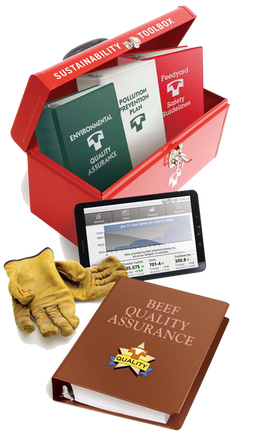
The U.S. Roundtable for Sustainable Beef (USRSB), a full beef stakeholder initiative focused on continuous improvement, officially recognized the Texas Cattle Feeders Association (TCFA) suite of feedyard services and programs as aligning with the U.S. Beef Industry Sustainability Framework.
“TCFA feedyards are the envy of the world in terms of efficiently converting grains and by-products into protein,” said Levi Berry, feedyard general manager and TCFA Chairman. “Over the last several decades, as an industry, we have consistently produced more beef with less cattle, used fewer overall inputs, implemented environmental management practices and strived to provide a safe workplace for our employees. This is the very definition of sustainability in action. TCFA feedyards have a great story to tell.” TCFA’s suite of feedyard programs consist of three main areas; employee safety, environmental services; and Beef Quality Assurance. The programs and services are implemented in partnership with TCFA feedyard members. In order to be recognized as aligning with the USRSB Framework, TCFA’s programs were required to demonstrate alignment with six key areas:
For example, TCFA feedyard members who utilize TCFA’s environmental services program align with the Framework’s water resources, land resources and air and greenhouse gas emission indicators. TCFA’s program includes environmental training, site audits, and soil, water and manure sampling. Additionally, the environmental services program helps feedyards develop sound Pollution Prevention Plans and Nutrient Management Plans. The programs underwent an evaluation by an independent third-party in order to demonstrate incorporation of U.S. Beef Industry Sustainability Framework criteria. The alignment claim is applicable for three years, at which time TCFA would reapply to keep recognition status. “The USRSB Framework is new, but TCFA members have focused on improvements in these areas for years,” said Berry. “Now, because TCFA’s programs have been recognized, TCFA feedyard members can highlight their efforts in all of these areas under the larger umbrella of sustainability — something consumers want from producers.” For more information on the USRSB Recognition Program, visit www.usrsb.org. |
Categories
All
Archives
June 2024
|
About TCFA |
Get Involved |
|

